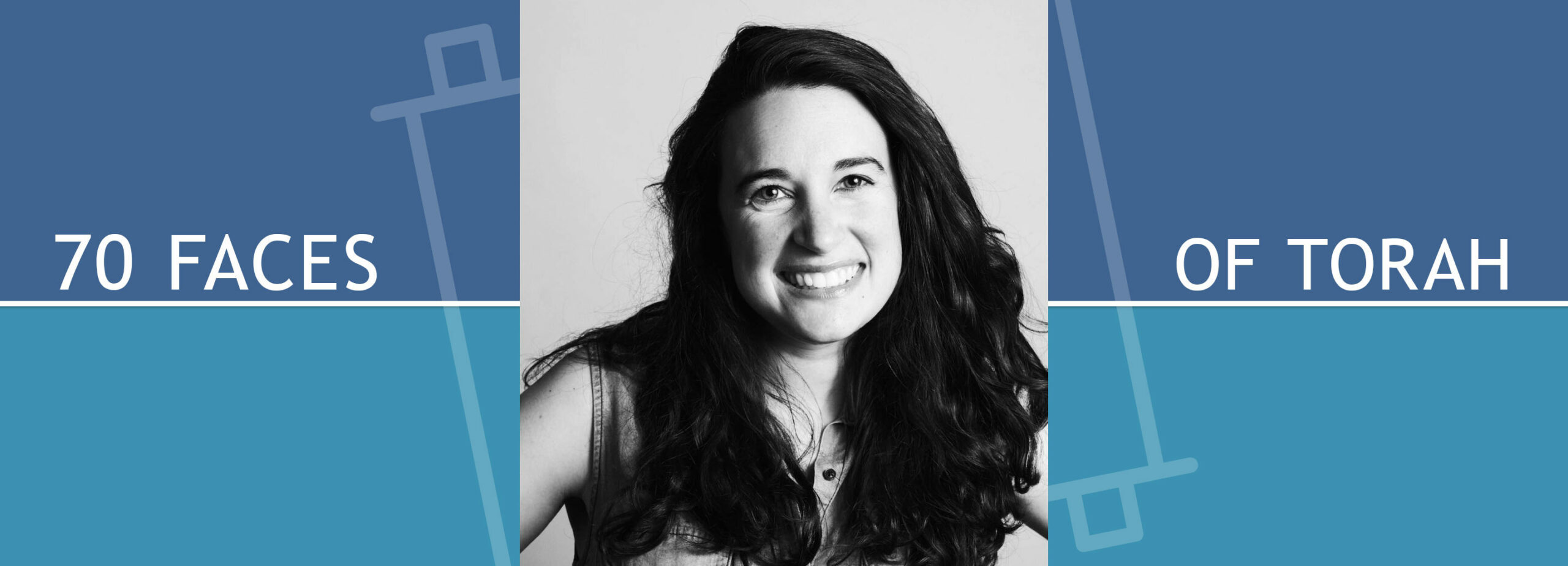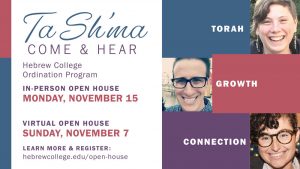Genesis Life in a Spiral

Parshat Lech Lecha (Genesis 12:1–17:27)
Eleven years ago, I moved to New York City, young, naive, and without any idea of where I was going next. The first apartment I moved into turned out to be uninhabitable, so, two days into my New York City adventure, I was left without a home, a job, or a place to spend the night. Thankfully, I had a relative in Washington Heights who took me in and gave me a bed to sleep in for a few months.
That chapter of my life was highly educational, but not necessarily one I would want to repeat. Ironically, however, my life seems to have repeated itself on its own accord. Two months ago, I found myself moving again to New York, this time part time, for a rabbinical school internship, and realized again that the place I had lined up to stay was uninhabitable. Soon after, another opportunity emerged to stay in a new apartment, in Washington Heights—yet again—and that’s where I will be living over the next 10 months. I shared this story with a friend, lamenting that I seem to be doomed to repeat my own (sometimes fraught) history. She responded that I’m not repeating my life in a flat line, but rather, I’m repeating life in a spiral.
This image of spirals was in my head as I read the iconic opening line of this week’s parsha: “וַיֹּ֤אמֶר יְהֹוָה֙ אֶל־אַבְרָ֔ם לֶךְ־לְךָ֛ מֵאַרְצְךָ֥ וּמִמּֽוֹלַדְתְּךָ֖ וּמִבֵּ֣ית אָבִ֑יךָ אֶל־הָאָ֖רֶץ אֲשֶׁ֥ר אַרְאֶֽךָּ׃”—“The LORD said to Abram, “Go forth from your native land and from your father’s house to the land that I will show you.” (Genesis 12:1, JPS translation). In order to fulfill this commandment from God, in order to go toward Canaan, Abram must separate from his father and his homeland. In exchange, God promises to bless Abram’s offspring in the future.
It is the small words right at the beginning of God’s command—Lech Lecha—that are so provocative. What does it mean for God to command Abram not just to go (which could simply be written as lech), but rather to go towards himself—lech lecha. The words themselves call to mind a spiral—go towards yourself, getting closer and closer to yourself each time you choose a new path.
The text is remarkably silent on Abram’s emotional state during this intense period of transition, but as I read through the parsha, I couldn’t help but imagine Abram in an emotional crisis; I could almost hear his words, mirroring my own feelings on moving, seeking reassurance. I am being instructed to leave everything I have ever known behind. I know this is the right move, but how can I truly move forward with confidence?
Looking for responses to both of our crises, I came upon the book Tiny Beautiful Things: Advice on Love and Life from Dear Sugar, a compilation of advice letters by author and podcaster Cheryl Strayed. Thankfully, on the subject of leaving, Strayed isn’t silent at all. “Go” she writes in one of her letters. “Go, even though there is nowhere to go. Go, even though you don’t know exactly why you can’t stay. Go, because you want to. Go because wanting to leave is enough.” Lech Lecha indeed.
Later on in the parsha, chapter 13, verse 12, Abram once again makes a separation from a family member, this time from his nephew Lot. The text again tells us that Abram will stay in Canaan while his family will be elsewhere. And, afterward, God, once again, tells Abram that he and his offspring will be blessed. This time, God says they will be as plentiful as the dust of the earth. It seems that, like me in New York, Abram is also living a weird time warp of his own life. After Abram separates from Lot, God commands him in Genesis 13:17: “ק֚וּם הִתְהַלֵּ֣ךְ בָּאָ֔רֶץ לְאׇרְכָּ֖הּ וּלְרׇחְבָּ֑הּ כִּ֥י לְךָ֖ אֶתְּנֶֽנָּה”—“Get up and walk about the land, its’ length and it’s breadth for I give it to you” Abram is being commanded to pick up and go all over again.
The rabbis of Breshit Rabbah suggest that it is at this moment, when Abrham is told to go a second time, that he truly acquires the land of Canaan—perhaps because this time he has the conviction to get up and go all over again. When Abram is willing to re-experience the hardships of setting out on his own, re-confront the difficulties of leaving, and renew his commitments to God, he is able to fully receive the blessing of the land of Canaan. This is not something that can be done one time only, it has to be undertaken again and again, with new challenges, and new lessons presenting themselves to him, as he moves further and further along the spiral of his life.
Indeed, the words of lech lecha themselves are a repetition—go, again and again, it seems to suggest. Rashi writes that this particular phrase means not just going, but going for yourself, for your own sake and for your own benefit. Sometimes the only thing compelling us to return to a situation is our own inner desire, and here we can trust the words of God (and Cheryl Strayed) to guide us: Go again, even if it’s just for yourself.
At the end of Lech Lecha, Abram gets one final blessing from God and becomes Abraham. With his new name, it is now clear that he is a changed man. But his new self (and name) contains his old self within it. He carries all the old versions of Abram with him into his new life as Abraham. I, too, will be a different version of myself this time around in New York, perhaps not as young, not as naive, and perhaps more ready to receive blessings from the same place than I was before.
Yael Werber is a fifth year rabbinical student at Hebrew College. She is interning this year at Congregation Beit Simchat Torah (CBST) in Manhattan.
Want to learn more about our rabbinical program?
 Join us for one of our November Open Houses. Learn more and register here.
Join us for one of our November Open Houses. Learn more and register here.

